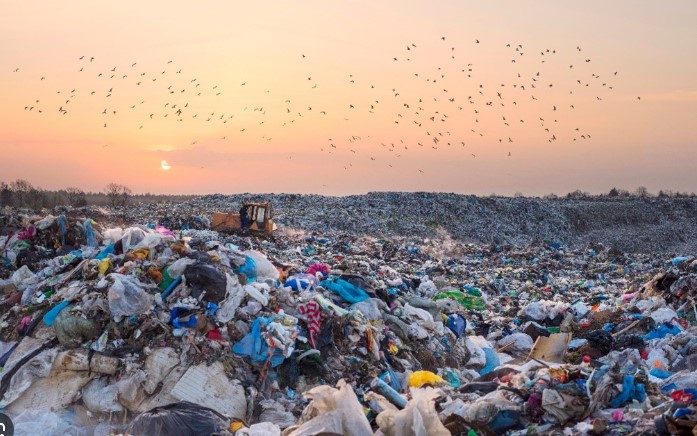Organic waste has a significant impact on greenhouse gas emissions, especially when it ends up in landfills. While organic materials like food scraps, yard waste, and paper products naturally decompose, the conditions in landfills create problems. These waste materials release harmful gases, such as methane, into the atmosphere, contributing to climate change. Let’s explore how organic waste affects greenhouse gas emissions and what can be done to reduce its impact.

Methane Emissions from Landfills
When organic waste decomposes in landfills, it produces methane, a potent greenhouse gas. Landfills are anaerobic environments, meaning there is little to no oxygen present to break down the waste. In these conditions, bacteria break down organic matter and release methane as a byproduct. Methane is far more effective at trapping heat in the atmosphere than carbon dioxide, making it a major contributor to global warming.
Methane from landfills is a major factor in climate change.
The Role of Food Waste
Food waste is one of the largest contributors to organic waste in landfills. In many cases, food waste is disposed of without any consideration of its environmental impact. As food decomposes in landfills, it releases methane gas, further intensifying global warming. Additionally, wasted food also wastes the energy, water, and resources used to produce it. Reducing food waste is key to reducing methane emissions.
Reducing food waste helps lower methane emissions and conserves resources.
The Importance of Composting
Composting organic waste is a far better alternative to landfill disposal. In composting, organic materials break down aerobically, meaning with the presence of oxygen. This process produces carbon dioxide, a less harmful gas than methane. Composting organic waste not only reduces methane emissions but also creates valuable compost, which can enrich soil and promote plant growth.
Composting is an effective way to reduce methane emissions and benefit the environment.
Diversion from Landfills
One of the most effective ways to minimize the impact of organic waste on greenhouse gas emissions is to divert it from landfills. Many cities and municipalities are adopting composting programs to divert food scraps and yard waste from landfills. By establishing composting systems, restaurants, households, and businesses can significantly reduce the amount of organic waste that ends up in landfills. This helps lower methane emissions and reduces landfill burden.
Diverting organic waste to composting programs reduces landfill emissions.
Alternative Waste-to-Energy Solutions
Another way to mitigate the greenhouse gas impact of organic waste is through waste-to-energy technologies. Some landfills capture methane gas and use it to generate electricity, reducing its environmental impact. Additionally, anaerobic digestion is a process that breaks down organic waste in the absence of oxygen, but under controlled conditions. This method also captures methane for energy use, preventing its release into the atmosphere.
Waste-to-energy technologies can help reduce methane emissions from landfills.
The Carbon Footprint of Organic Waste
Beyond methane emissions, organic waste contributes to a larger carbon footprint. The energy and resources required to grow, process, and transport food create significant carbon emissions before the food even reaches the landfill. When this food is wasted, all of those emissions are essentially squandered. Reducing food waste not only limits methane emissions but also conserves energy and reduces the overall carbon footprint associated with food production.
Reducing food waste lowers carbon emissions at every stage of the supply chain.
The Benefits of Reducing Organic Waste
Reducing organic waste has multiple benefits for both the environment and the economy. By cutting down on waste sent to landfills, methane emissions decrease, helping to mitigate climate change. Composting organic materials helps restore soil health and boosts agricultural productivity. Additionally, reducing organic waste can save money by cutting disposal costs for businesses and municipalities.
Reducing organic waste benefits both the environment and local communities.
Conclusion
The impact of organic waste on greenhouse gas emissions is significant, especially in landfills where methane is released. By composting organic waste, diverting it from landfills, and reducing food waste, we can greatly reduce methane emissions and help combat climate change. Additionally, alternative waste-to-energy solutions and smarter waste management practices contribute to a more sustainable future. Reducing organic waste is not only a necessity but an opportunity for positive environmental change.


I don’t think the title of your article matches the content lol. Just kidding, mainly because I had some doubts after reading the article.
Giờ hãy cùng tìm hiểu chi tiết hơn về những đặc điểm nổi bật đã giúp 188v. vip ghi điểm trong mắt cộng đồng người chơi. TONY01-16
Your point of view caught my eye and was very interesting. Thanks. I have a question for you. https://www.binance.com/da-DK/register?ref=V3MG69RO